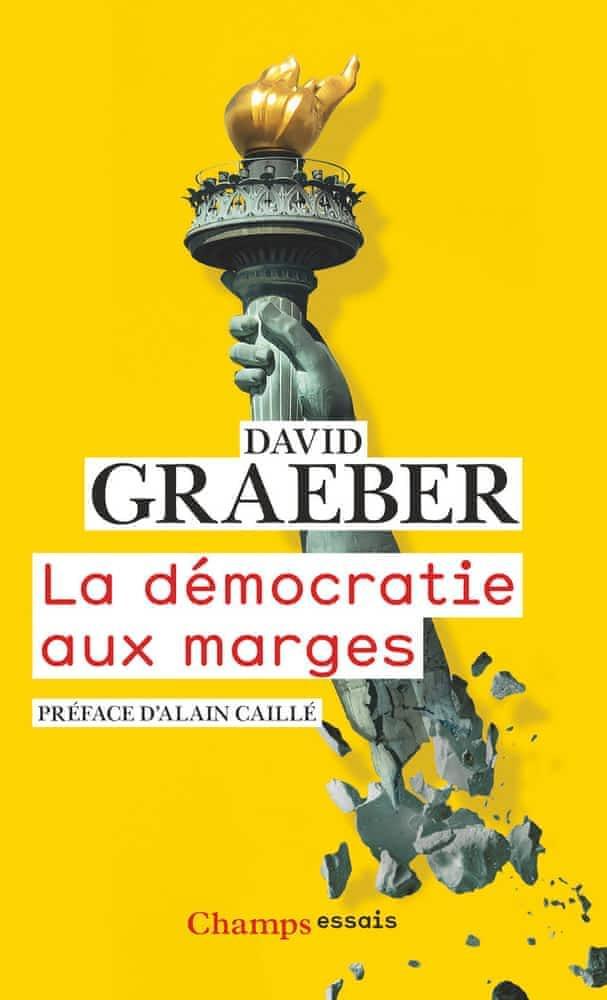Vincent Tijms reviewed The Democracy Project by David Graeber
Review of 'The Democracy Project' on 'Goodreads'
4 stars
While the arguments aren't presented as coherently as they should have been, Graeber makes some excellent points about the shape that contemporary politics is taking, as well as about the rich history from which democratic movements can draw their inspiration. Democracy, argues Graeber, is not a singular concept that was at one point invented -- or even rediscovered -- by French, British and American intellectuals. Instead, peoples across both world and time have experimented with collective decision-making by consensus and have found many different ways to do so. According to Graeber, the so-called democratic revolution mostly consisted of selecting those ways that were compatible with existing power structures, while disposing of those that challenged established hierarchies. To do so, both the New World and Old World projects were molded into a Roman, essentially aristocratic form. In fact, Graeber shows, up until the 1800s, admitting to being a 'democrat' was tantamount …
While the arguments aren't presented as coherently as they should have been, Graeber makes some excellent points about the shape that contemporary politics is taking, as well as about the rich history from which democratic movements can draw their inspiration. Democracy, argues Graeber, is not a singular concept that was at one point invented -- or even rediscovered -- by French, British and American intellectuals. Instead, peoples across both world and time have experimented with collective decision-making by consensus and have found many different ways to do so. According to Graeber, the so-called democratic revolution mostly consisted of selecting those ways that were compatible with existing power structures, while disposing of those that challenged established hierarchies. To do so, both the New World and Old World projects were molded into a Roman, essentially aristocratic form. In fact, Graeber shows, up until the 1800s, admitting to being a 'democrat' was tantamount to claiming to be a radical crackpot -- the democratic project was considered to be an aristocratic enterprise by its own architects.
This admittedly revisionist account is one that fits well with [a:Bakunin|5447290|Bakunin|https://s.gr-assets.com/assets/nophoto/user/u_50x66-a7c55399ea455530473b9f9e4da94c40.png]'s view of social structure being built around a managerial class or, in the words of [a:Michael Albert|112947|Michael Albert|https://d.gr-assets.com/authors/1346936675p2/112947.jpg], the coordinators. Graeber fully subscribes to this view and argues that our current political dynamics is, at least at its fringes, dominated by resistance against different kinds of coordinators. While left-wingers (e.g. Occupy) take aim at CEOs, hedge funds and other capitalists who constrain the lives of others, Graeber believes right-wingers (e.g. the Tea Party) take aim at technocrats, media personalities and academics for similar reasons.
Both the historical account and the analyses of current events are argued for convincingly. Graeber seems to share my personal belief that the direction of current politics is not immediately towards liberty, nor towards equality or brotherhood, but towards the autonomy that is a necessary condition for the former triad to flourish. As this is basically an anti-ideological stance, he isn't able to formulate what a free society looks like, or how it should be run.
But he tries anyway.
And that is where the greatest weakness of the book lies. It's impossible to be specific about tomorrow's society and Graber realizes this, so his view of the future is clouded with abstractions and slogans. He is right not to draw a blueprint, but should have also refrained from sketching a vague outline in flowery prose that even Barack Obama would find insubstantial.
Yet, even despite these and other misgivings, The Democracy Project is an inspiring read for anyone who is willing to entertain the possiblity of genuine democracy in a free, horizontalist society.

